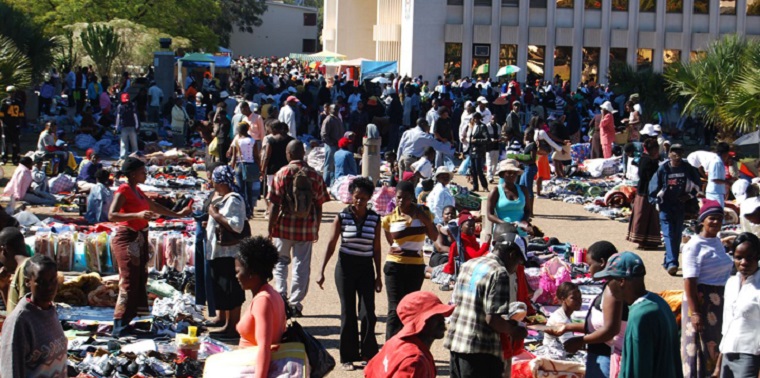By Dr Davison Todson Gomo
THE subject of SMEs is now so widely discussed because of the perceived potential of the SMEs to contribute to the economic development of any country in the World.

Surprisingly, many people can be forgiven for thinking that advanced economies particularly in the western nations are driven by large companies. While it remains true those large enterprises invest hugely and reap hugely but the bottom line is that the SMEs pick up the bulk of the businesses and often constitute a high percentage of registered companies that operate in the advanced market economies.
“In the European Union [EU], governments play a part in promoting innovative SMEs in the global economy.” OECD 3 -5 June 2004, Istabul
This is down to the fact that in most European countries SMEs account for over 80% of total businesses that operate in those jurisdictions and their economic contribution to the various European countries is very significant.
Some writers and observers have recognized that “there is now a wide spread recognition that the small and medium sized enterprises [SMEs] can make a vital contribution to job creation, competitiveness and growth within economies of the world.”
When it comes to developing countries like Zimbabwe, government has very little choice but to find ways to create an enabling environment for the SMEs sector because as a result of history, most indigenous people that wish to enter business generally start as small enterprises.
The role that SMEs play is critical not only because of the products and services they produce but largely because they replaced some of the big companies that found the going very tough after ESAP, the impact of the sanctions and various difficult episodes that the economy went through.
Small players moved into furniture making, textiles, shoe making, construction, plastic packaging, agricultural processing, distribution and logistics among many other things. This is why Zimbabwe has a ministry dedicated to the promotion and running of SMEs.
Government is fully aware that SMEs make a significant contribution to the economy for instance, in 2016,” the SMEs contributed $8.58 billion to the country’s GDP and employed more than 5.9 million people [over 75% of the total work force of 7.8 million.” Bulawayo 24 reported
Interestingly, SMEs now make up over 70% of Zimbabwe Revenue Authority data base of registered tax payers while contributing 20% in taxes.
It is clear that this sector requires appropriate attention to make sure that the policy environment and support systems are designed to ensure the survival and growth of the SMEs.
The excitement about the prospects of the increasing importance of the SMEs in economic development is not something that is shared and limited to Africa, Asia and China are equally excited about how SMEs have the potential to create jobs and equally to build a home-grown entrepreneurial class that is creative and innovative and can compete at global level.
However, in order to incentivize the SMEs, there is need to improve the administrative and regulatory business environment, the financial and fiscal environment, assist and support the enhancement of SME competitiveness and help SMEs to take advantage of opportunities offered by regional and international markets.
Just so that SMEs continue to play a positive role in the economy particularly in the area of job creation, contributing to economic growth and the reduction of poverty, what is needed is;
National high-level recognition of the potential of the SMEs.
Political will and commitment on the part of government to see the SMEs policies through, Commitment by support institutions to lend the SMEs the support they need, Presence of strong local structures such as banks, availability of loan and credit facilities and training institutions.
Unfortunately, it is not always the case that SMEs receive the support they need and very often than not, the policies are not SME friendly. This is why a robust and dynamic SME sector is absent or very weak in a number of developing countries. Unless these weaknesses are corrected, most micro businesses prefer to maintain an informal status.
Due to globalization, developing countries urgently need to ensure that they have a critical mass of small domestic enterprises which if properly supported should compete internationally and be capable of penetrating global chains of production and reach out to export markets.
This view is supported by the outcome of discussions at the 2nd International Symposium on Sustainable Development that was held in Sarajevo June 8 -9 2010 that declared a view suggesting that “the new ideology of neo – liberalism and globalization emphasizes the role of SMEs as promoters of a healthy business climate, economic efficiency and power of economic development, especially in the developing countries.”
The same Symposium noted that “today instead of large scale industries, SMEs having gained importance in the developing countries, became advantageous being economic enterprises having the capability of quick adaptation, working with less capital but more intense labour and having low cost of management and thus having cheap production.”
To cement the role of SMEs as the economy or at least the backbone of the economy, the US Congress has authorised the Small Business Administration to carry out a network of programmes to provide small businesses with quality training, counselling and access to resources.
The importance of the SMEs in contributing to job creation and output growth is now widely accepted in both developed and developing countries. It is now very important that countries understand the strategic nature of the SMEs in terms of their role in contributing to economic development and hence the need to ensure that they receive the support they need to stay ahead of their game.
What can Government do to Support the SMEs
SMEs particularly in developing countries require a better business environment. A poor business environment can disproportionately affect SMEs. Therefore, it is important that some issues be given serious attention in order to remove any factors that might affect the performance of the SMEs and thus reducing their effectiveness and potential to contribute to economic development.
Some of the issues are;
Giving SMEs better access to finance and capital markets
Sometimes they render services but payments are unduly delayed especially from public sector entities.
There is need to explore opportunities for the simplification of the tax system and to create incentives that encourage the SMEs to do better
In cases where disputes arise, there must be clear and efficient dispute settlement procedures
The cost of certification and standard regulations must be reasonable and easy to follow
Where possible, government must reduce trade barriers to encourage exports and to access imports of critical technology, support competitiveness and modernization of SMEs and support industrial competitiveness of SMEs to increase room for exports.
Local development initiatives such as devolution must target the SMEs to support the spread of business throughout all the country’s regions. There must be access to training and new technologies to enhance capabilities and competitiveness. Above all, government must not be seen as discriminating against the SMEs in favor of large corporations as seems to be the case. SMEs require the same level of attention and incentives in order to release their full potential.
*Dr Davison Todson Gomo is a Development Economist and writes in his personal capacity. Contact email – dtgomo@gmail.com







